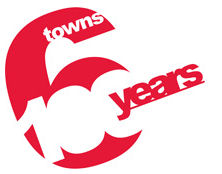31st March 1910 saw the federation of the
six towns to form the County Borough of Stoke-on-Trent
|
Stoke-on-Trent Local
History |
|
|
|
|
| Federation of the six towns 31st March 1910 saw the federation of the six towns to form the County Borough of Stoke-on-Trent |
![]()
![]()
![]()
next: Harry McBrine
previous: Sam Clowes
contents: Index page for
Federation


Federation article by local
historian - Fred Hughes
People who made the Potteries -The Barber Dynasty
|
Building political dynasties is humdrum stuff. Think of the Chamberlain's - father Joseph, son Austen and his half-brother Neville; or perhaps more recently the Benn's, father and son Tony and Hilary. Harriet Harman is a niece of the wife of Lord Longford and Peter Mandelson's grandfather was post-war cabinet minister Herbert Morrison. Alistair Darling's great-uncle was a Tory MP, so was the father of our own Mark Fisher. Politics, it seems, attracts families. If you glanced at a list of City Councillors for the period between 1936 and 1942 you'd see something rather unique. For there, on the benches of the council chamber, you'd find a father, his son and his grandson sitting side by side; an exceptional case of political ancestry. George Herbert Barber (1860-1946) was sent to Chell workhouse when he was seven following his mother's death and his father's incapacity through illness. He later became a farm labourer and coalminer and learnt to play the accordion to entertain pub customers around Tunstall. Deprived of formal education he was self-taught in the three 'Rs' and his determination to find purpose to life drew him to Methodism. In his autobiography, 'From Workhouse to Lord Mayor' George Herbert recalls distressing memories while assisting miner's families during several strikes during the last two decade of the 19th century: 'begging for food almost broke my spirit,' he passionately recalled. He saw drunkenness as an ally of poverty and became a vigorous campaigner for the temperance movement giving lantern lectures on the perils of drink. Fascinated by the advent of moving pictures George Herbert invested in the potential of the new cinema as an education and entertainment medium for the poor masses, and in 1909 he opened Tunstall's first 'Barbers Picture Palace'. Within 10 years he owned a chain of cinemas throughout the Potteries and in other parts of the country.
It was in 1930 when the City received a royal visit from Princess Mary, the Countess of Harewood. Sitting next to the Lord Mayor at the civic lunch the demure 35 year-old eldest daughter of King George V, was astonished when Stoke-on-Trent's first citizen reached across to retrieve a morsel of fat she had discarded at the side of her plate: 'thay mustna leave good food lark that arinde thays parts your 'ighness', he tutted, and promptly devoured it from his fingers. George Herbert's son, Ernest Albert, was a general manager of the family's cinema business. He was also an active socialist and followed his father on the council in 1930. By all accounts Ernest was an excellent footballer and, perhaps because he suffered periods of ill-health as a consequence of being wounded at Gallipoli, it was a sport that may have benefitted more from his skills had he been healthier. Nevertheless he was a resourceful charity worker and raised considerable funds for North Staffs Royal Infirmary and particularly for building the new Haywood Hospital. Grandson, George Leonard Barber, also played a major role in the management of the stable of Barber's Picture Palaces. Len, as he was popularly known, became a councillor in 1936. He was chairman of the committee that promoted an airport for Stoke-on-Trent at Meir. Imagine if that had come off. Imagine the importance of Stoke-on-Trent as an international communications centre! It was education, though, that interested Len most. Through various terms as chairman of Stoke-on-Trent Education Committee he pioneered the development of further education in the Elms and Cauldon Colleges. He played a leading role in creating Polytechnics, Six Form education and founding Pendril Hall at Wedgwood Memorial College, and was Deputy Pro Chancellor of Keele University for many years. Len became Lord Mayor in 1952 and continued as a councillor for Stoke-on-Trent at county level between 1974 and 1989 where he was involved in the wider field of county education.
Like his father he was a great lover of most team sports, his two great passions being cricket - he was a player and past-president of Chell Cricket Club - and football where he played for Port Vale and was also one of the club's past-presidents. The Barber family's community involvement is undoubtedly grounded in its religious faith. Len was a former chaplain for the City and County Councils and his son Philip is the current Lord Mayor's chaplain. Socialism, religion and
business are contradictory bedfellows. And yet, when allied to the codes
of moral decency, universal and unconditional respect, they can be a
powerful combination for community leadership. |
![]()
![]()
![]()
next: Harry McBrine
previous: Sam Clowes
contents: Index page for
Federation